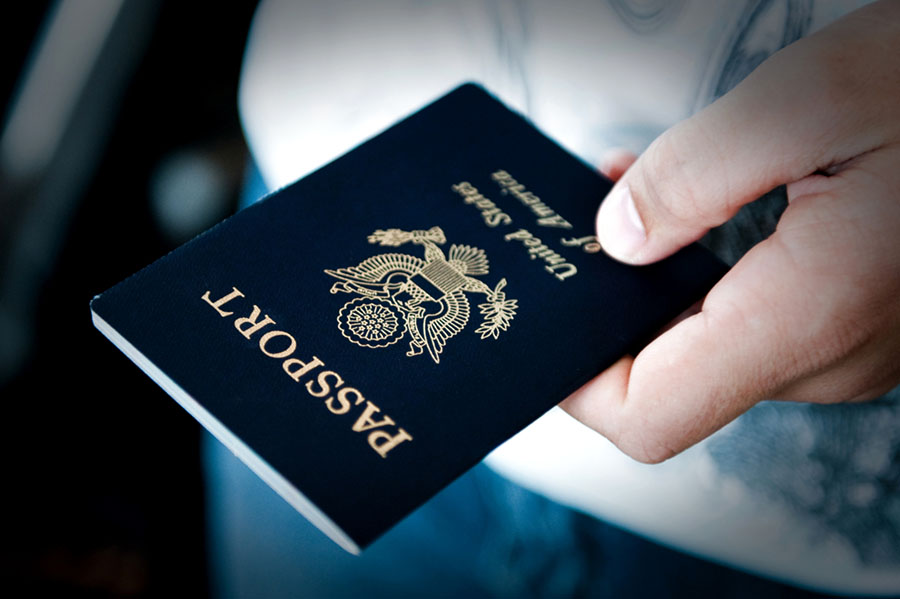
Chipped Passport and RFID Spies
Chipped Passport and RFID Lead to the End of Privacy. The NWO Will Know Everywhere You go in the One World Government; Chip Technology Foreshadows the Police State.
Chipped passport and RFID aren’t just possible, they’re reality. RFID, Radio Frequency Identification, will soon be found in passports issued by most countries. So what does this mean to you?
RFID chips in passports will electronically store passport information such as your name, your picture, and your address. And in the future it will be possible for these passport Radio Frequency Identification chips to store your fingerprints.
Taken in context, having an RFID chip in your passport can be useful when traveling since it will reduce time spent in lineups and make moving through security that much more simple.
Where the problem arises is your passport information can be read without you even knowing it’s being scanned.
RFID in Passports
This will allow not only the United States government but also most countries around the world to track your movements without your consent.
As well, anyone who wants to steal your identity or is just curious about who you are, can access information through your chipped passport and RFID tag.
Despite all of these concerns about privacy and security, the United States State Department has continued with their plan of issuing Radio Frequency Identification in American passports.
State Department Assures no Risk
Since there has been so much criticism about the chipped passport and RFID the US State Department has taken steps to assure Americans there are no privacy or security risks.
Passports that are embedded with the Radio Frequency Identification chip will come with a shielded cover that makes it more difficult for the chip to be read when the passport is closed.
The State Department states that other ways to reduce the risk of someone reading passport data and using the information, or altering it, are access controls and encryption techniques.
Despite the assurance of security measures, experts feel these assurances won’t be enough. Shielding the passport won’t work if the passport is open. Just think of how many times you have to show your passport when you travel.
This means that every time you open your passport your information is there for anyone with the means to read it. And anytime there is useful information for someone to steal, they’ll find a way to take it.
Invasion of Privacy
You won’t just find Radio Frequency Identification chips embedded on your passport, you’ll also find RFID tags showing up on many of the products you buy.
These RFID tags will have unique numbers, even on the same products that come from one box, such as bottled water. But the issue here isn’t that RFID tags are being attached to the products you buy.
The issue is that when you walk out of the store with that bottle of water, marketers and advertisers have the ability to track your movements. Anyone with the technology to read RFID tags will know where you bought that water and when you bought it.
Still not an issue? It doesn’t matter whether they are marketers, advertisers, or others who gather information from the RFID tag on bottled water. What matters is that your right to privacy is being threatened. And it won’t stop there.
Future uses of Radio Frequency Identification include tagging not only objects, but people. How long will it be before chipped passport and RFID tracking keeps track of where you travel, when you travel, and whom you travel with?
American Passport Holders at Risk
Perhaps all the assurances from the US State Department that the passport RFID is safe to use and contains only encrypted information are true.
But even if thieves aren’t able to read the contents of your RFID chip the very fact that someone can discover that you’re carrying a passport is a violation of privacy and a security risk.
And what if the unique identity of the Radio Frequency Identification chip on your passport indicates, for airline and airport purposes, that you’re carrying an American passport?
Not only are your civil liberties being disregarded, you’re carrying a red flag that you’re an American as you move through the immigration and customs areas of any airport in the world.
This will make Americans much more vulnerable and exposed to attacks from terrorists. Barry Steinhardt, the director of technology and liberty program at the American Civil Liberties Union, believes that the chipped passport and RFID is not a secure document.
RFID passports are an easy way for terrorists to target Americans for kidnapping and other terrorist activities. Americans need to voice their opposition to these new passports that take away their civil liberties and bring them to the attention of terrorists and thieves.

 My First Amazing Ayahuasca Experience
My First Amazing Ayahuasca Experience  Pine Needle Tea
Pine Needle Tea  The REAL Controllers of Humanity: The Papal Bloodlines
The REAL Controllers of Humanity: The Papal Bloodlines  Is it Global Warming or Cooling?
Is it Global Warming or Cooling?  Gun Rights and Obama Examined
Gun Rights and Obama Examined